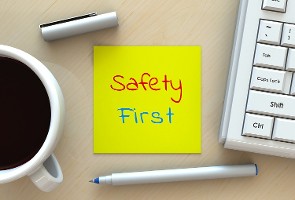All Things Business>
We understand your business, from safety to trends to growth strategies:
7 Reasons to Have Cyber Liability Insurance
If you are like many, you are more connected today than ever before, which is why cyber liability insurance is so important. From cell phones to digital personal assistants, our homes are wired to the max. Our phones are smart, our TVs are smart— even our appliances are often connected to Wi-Fi. While these connections bring many conveniences, they may also introduce additional cyber threats into your home.
NOW WHAT?
Working in an office setting sometimes gives a false sense of safety and security. While an office may not have the heavy machinery of a manufacturing plant or employees working from heights as in construction, a general office setting still has risks. This article will outline some of the risks and what you can do to mitigate the effects of these risks in your office.
Homeowners insurance can protect you and your family in the event of a loss caused by theft. But what is better than being reimbursed after the fact? Taking some simple steps to prevent burglaries in the first place!
Here are four optional auto insurance coverages you may have, or that you could add to your policy, to help turn a potential bad surprise into a good one.
97% customer claims satisfaction
We want the claim process to be a calming one. Your satisfaction is extremely important to us. So, when a claim comes in, we'll put your mind at ease and make sure you know we're here for you.





